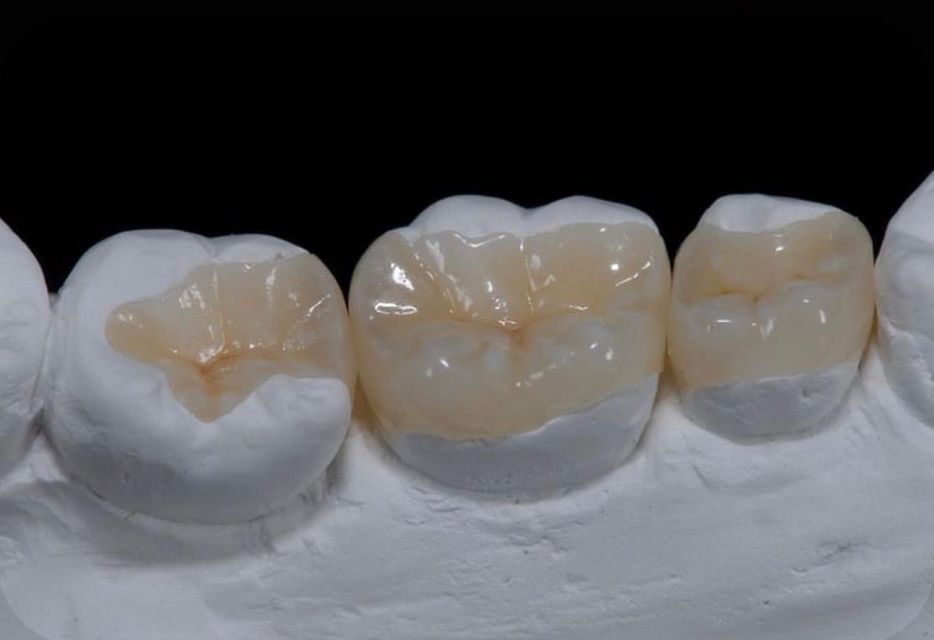INLAYS, ONLAYS, & CROWNS
Inlays and onlays are used when the tooth is too damaged for a simple filling but not damaged enough to warrant a dental crown. Inlays and onlays can also be used to reinforce a tooth that has been weakened by decay or to prevent further decay.

What Are Inlays and Onlays?
Inlays and onlays can be made of porcelain, gold, or composite resin. These pieces are bonded to the damaged area of the tooth. An inlay, which is similar to a filling, is used inside the cusp tips of the tooth. An onlay is a more substantial reconstruction, similar to the inlay but extending out over one or more of the cusps of the tooth.
Traditionally, gold has been the material of choice for inlays and onlays. In recent years, however, porcelain has become increasingly popular due to its strength and color, which can potentially match the natural color of your teeth. As some of the best dentists Boulder has to offer, Drs. Russ and Birnbach provide porcelain dental restoration services that will leave you with a beautiful and healthy smile.
How Are Inlays and Onlays Applied?
Inlays and onlays require two appointments to complete the procedure. The first visit entails the dentist removing damage or decay from the tooth and preparing it for an inlay or onlay. To get an accurate fit and bite, the dentist makes a mold of the tooth which is then sent to a lab. In the meantime, our Boulder dentists will put a temporary sealant over the area and schedule another appointment.
At the second appointment, the temporary sealant is removed. Dr. Russ or Dr. Birnbach will then make sure that the inlay or onlay fits correctly. If the fit is satisfactory, the inlay or onlay will be bonded to the tooth with a strong resin and polished to a smooth finish.
Considerations for Inlays and Onlays
Traditional fillings can reduce the strength of a natural tooth by up to 50 percent. As an alternative, inlays and onlays — which are bonded directly onto the tooth using special high-strength resins — can actually increase the strength of a tooth by up to 75 percent. As a result, they can last from 10 to 30 years. In some cases, where the damage to the tooth is not extensive enough to merit an entire crown, onlays can provide a very good alternative.
ConnectWith us
Call 303.443.4417 or request an appointment online to set up your first visit. We’ll be in touch soon.


